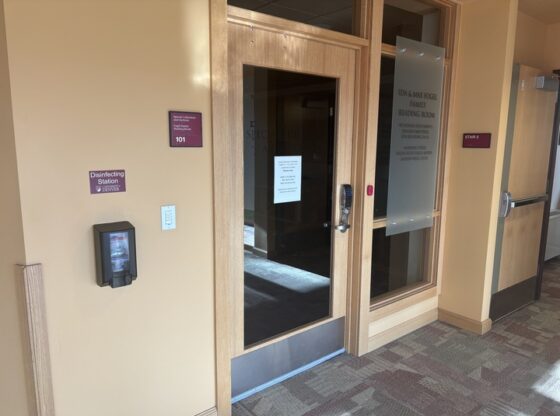Seasonal depression, otherwise known as Seasonal Affective Disorder (SAD) is a mood disorder that causes people to exhibit signs of depression during the winter months of the year. According to the National Institute of Mental Health (NIMH), SAD effects about 5% of the U.S. population. For anyone who has ever experienced seasonal depression, they not only know how difficult it is to manage, but they also know how much harder it becomes when you have to manage your schooling as well.
As we enter into the winter quarter, here are some tips to help you manage your SAD and still handle school.
First and foremost, you need to clean. According to Psychology Today you should try to take a shower or at least use some baby wipes and dry shampoo to make yourself feel a little more normal. Clean up your room; you don’t need to vacuum and dust but remove the clutter and take out the trash. Do your laundry. Cleaning yourself and your surroundings may help boost your natural serotonin levels and make you feel less overwhelmed and stuck in your depressive cycle.
Sit outside and breathe. It sounds very cliché, but sometimes it works. Find a quiet place and sit down with something warm like (decaf) coffee or tea. Make sure you are in the sun and let your body relax and warm up. The warmth from the sun and whatever you are drinking may help you feel more alert and help to ground you. Plus, according to NIMH, one major contributor to SAD is a lack of vitamin D so sitting in the sun will help you to replenish these levels in your blood. While you are sitting take some time to focus on your surroundings. Look at the sky or maybe people watch. Ground yourself in the reality that is surrounding you. Try not to think and just sit for a while.
Go to the Health and Counseling Center (HCC). Seek out therapy. According to the Mayo Clinic, discussing your depression with a therapist is a good way to determine where your depression stems from and how best to handle it. Going to the HCC will let you talk about your feelings to someone who can actually help you. They don’t push and they really do understand what you are going through. Sometimes just talking to someone, anyone, will help you feel more connected to the world.
Lastly, try to eat healthier. You may just want to eat carbs all of the time, but foods that are high in carbs but low in nutrients will lead to mood crashes that make you feel exhausted. According to Psychology Today, you should try to eat healthier foods that are high in vitamin D, Omega 3s or tryptophan as they have all been proven to improve people’s overall well-being and mood. On the other hand, you may not want to eat at all. If you never seem to be hungry or you have lost interest in eating try to carry healthy snacks in your backpack so that you don’t end up sick and there is a chance that you may feel up to eating a full meal later in the day.
Seasonal depression is hard to kick. You won’t wake up one day and be “cured.” There may be days where getting yourself to do anything on this list is impossible. That is okay. Take small steps and over time you will get better.











